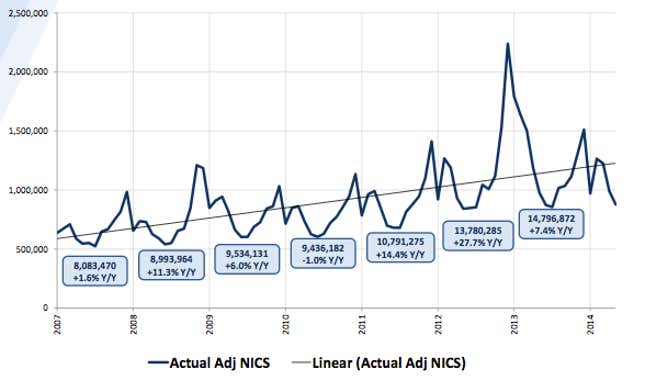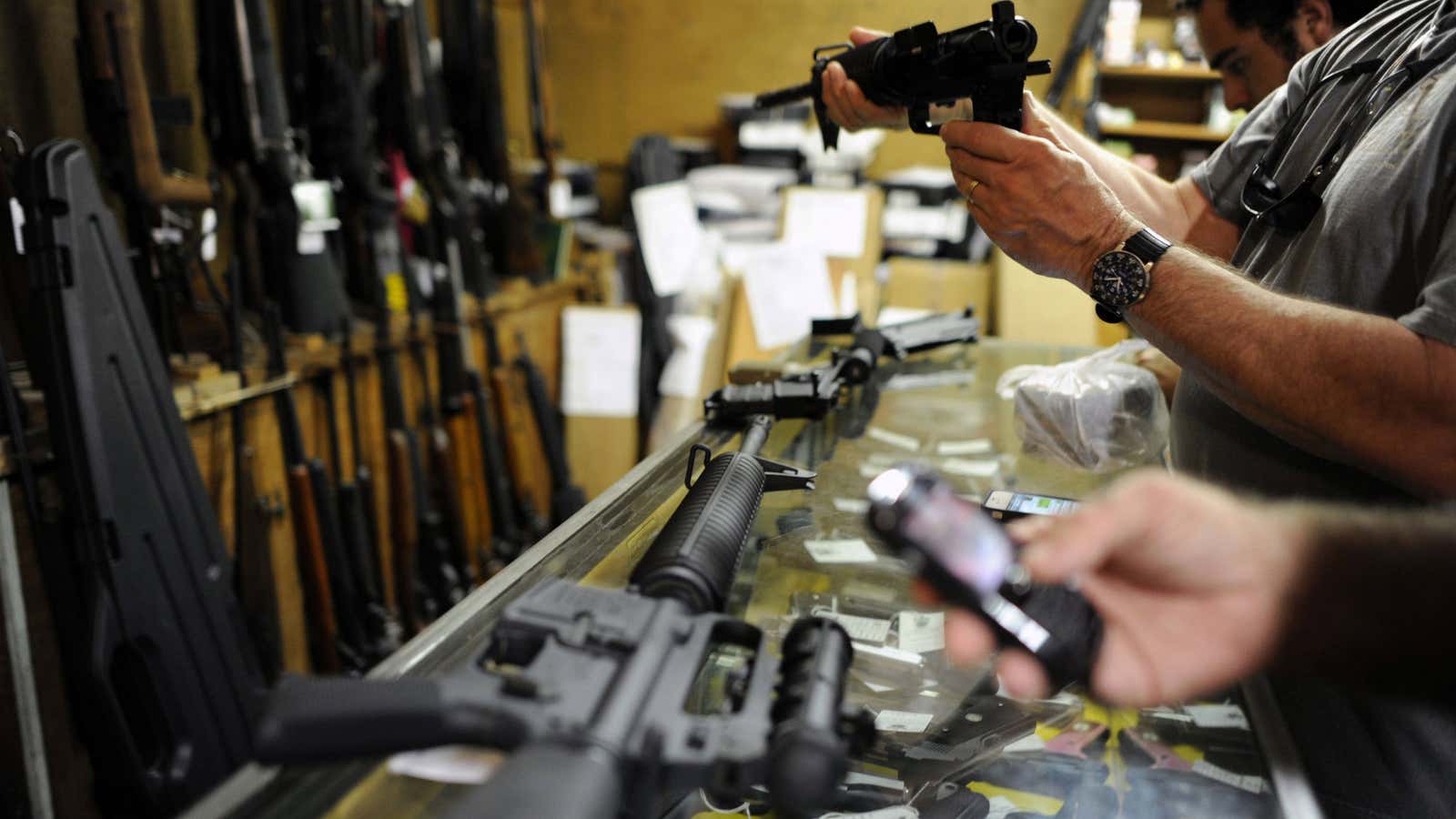Good news for gun control advocates in the US: Sales of the most dangerous guns may be on the decline. Bad news for gun control advocates: The reason is that Americans don’t think that stricter controls on dangerous weapons will ever happen.
Smith & Wesson, one of the country’s biggest makers of handguns and rifles, last week posted a 14% drop in quarterly earnings, triggering (no pun intended) a sharp decline in its share price. Consumer demand for “modern sporting rifles” (basically semi-automatic rifles) has “cooled significantly”, the company said.
Goldman Sachs estimates that Smith & Wesson’s”long gun sales”, which include modern sporting rifles, fell 46% last quarter from a year ago. These, the investment bank says, are more sensitive to fears of increased regulation than handguns, which are still flying off the shelves. (Unit sales were up 30%, Smith & Wesson said.)
In other words, when people fear that the government is going to clamp down on guns, they stockpile semi-automatic weapons that might be banned. This is what happened last year, following the horrific killing of 20 school children in Newtown, Connecticut in late 2012. Handguns, by contrast, aren’t affected, because even the most pro-gun-control American legislator doesn’t dare suggest restricting them.
Since then, president Barack Obama’s efforts to enact stricter controls on gun ownership have basically failed, and so the panic buying of guns and ammunition appears to have subsided.
Smith & Wesson’s presentation to investors showed that the number of background checks being carried by the FBI on prospective gun owners have moderated from their recent peaks. (NICS stands for National Instant Criminal background check System)

Goldman also notes that order backlogs for Smith & Wesson as well as rival gunmaker Sturm, Ruger & Co and the ammunition maker Winchester have all dissipated. ”We believe declines in retail sales of modern sporting rifles may be incrementally worse than previously thought,” the investment bank says.
There has been another tragic outbreak of gun-related violence in the US recently. But control isn’t even on the political agenda right now, due to the outright hostility toward it in the US Congress.
That means the short-term bubble in gun sales is probably over. But as Smith & Wesson’s CEO James Debney told investors on last week’s earnings call, the company thinks that its business has a long future ahead of it. “We’re not changing our long-term view whatsoever,” he said.
